
The first National Digital Skills Audit took place in the autumn of 2020. It was a collaboration between the UK Tech Cluster Group and the Institute of Coding, and rolled out the successful approach that Manchester Digital has been using for several years. While we didn’t get enough data to make useful comparisons between our region and the rest of the country, the Audit did highlight some interesting national trends.
Trend 1 – Remote Working
Unsurprisingly, 43% of the businesses who responded plan to offer full time remote working over the next 12 months. In addition, 29% have reduced their office space and the percentage of businesses who described themselves as “office only” dropped from 24% before the pandemic to 4% at the time of responding.
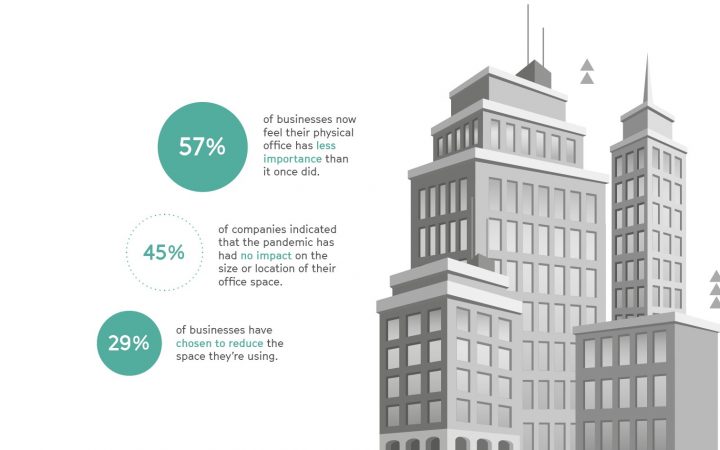
Trend 2 – the Covid19 Challenge
While 42% of businesses reported a loss of business due to the pandemic, the sector overall is robust. 80% of businesses have increased or maintained staffing levels and 74% have increased or maintained revenue. Where businesses did report a loss in revenue, smaller companies (fewer than 10 employees) were hit the hardest. Self-employed members of our industry have also felt the impact more, with 37% of them reporting a loss in income.
That doesn’t mean that it was business as usual, however. 59% of businesses said that they saw a change in client requirements and 37% had to change their product or service offer.
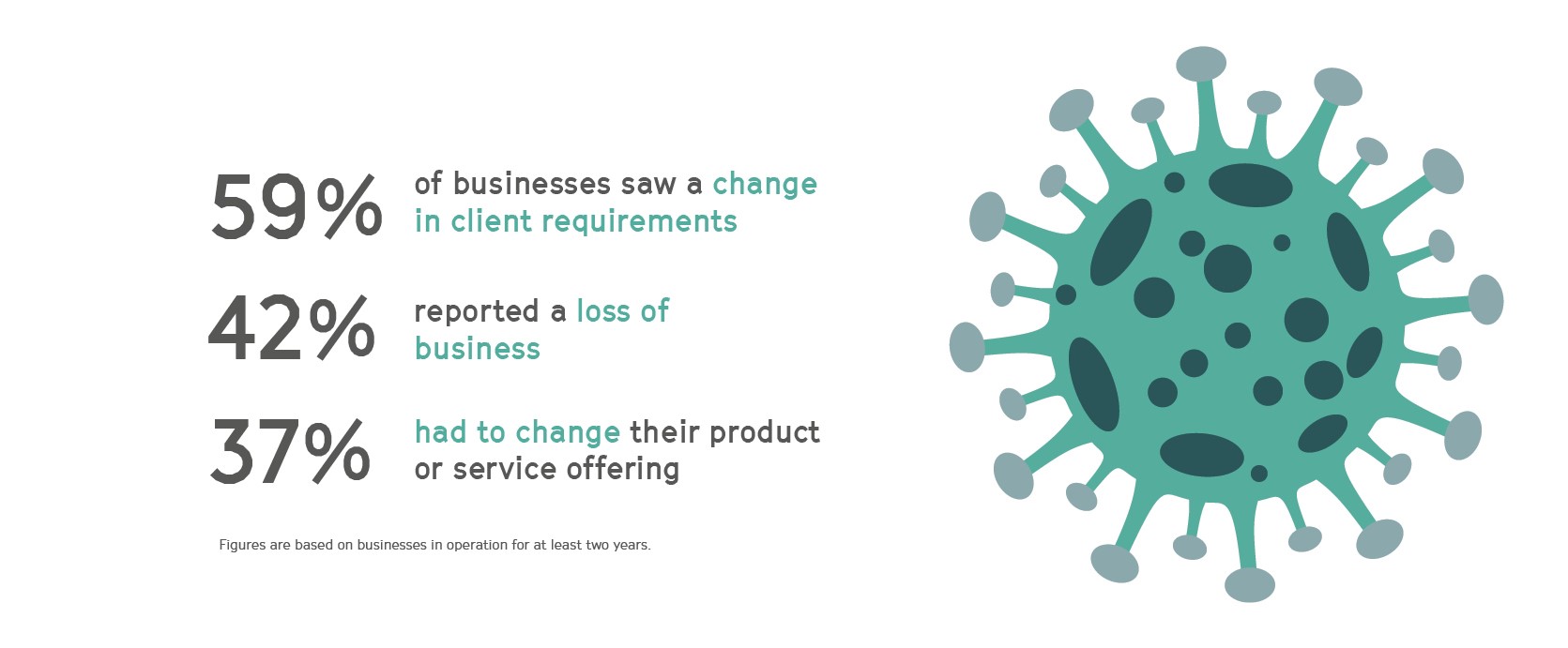
Trend 3 – Skills Today
Only 20% of companies said that they were unable to fill their digital and tech vacancies, although this varied across different regions of the country. The main reason that companies gave was a lack of experienced candidates. The top five hard to fill roles were developers, digital marketing, DevOps, testing/QA and user experience.
Of people currently working in the sector, 53% had a degree. Interestingly, the data suggests those individuals entering the industry in the last five years were less likely to have come via an industry related degree, compared to those individuals who have been in the industry for 15 years or longer. Nearly a quarter of individuals had come into digital from another sector (something we addressed in a recent post about changing careers and moving into the tech sector).
Overall, 42% of companies reported that they had hired graduates in the past 12 months, with this rising to 47% for companies with more than 10 staff.
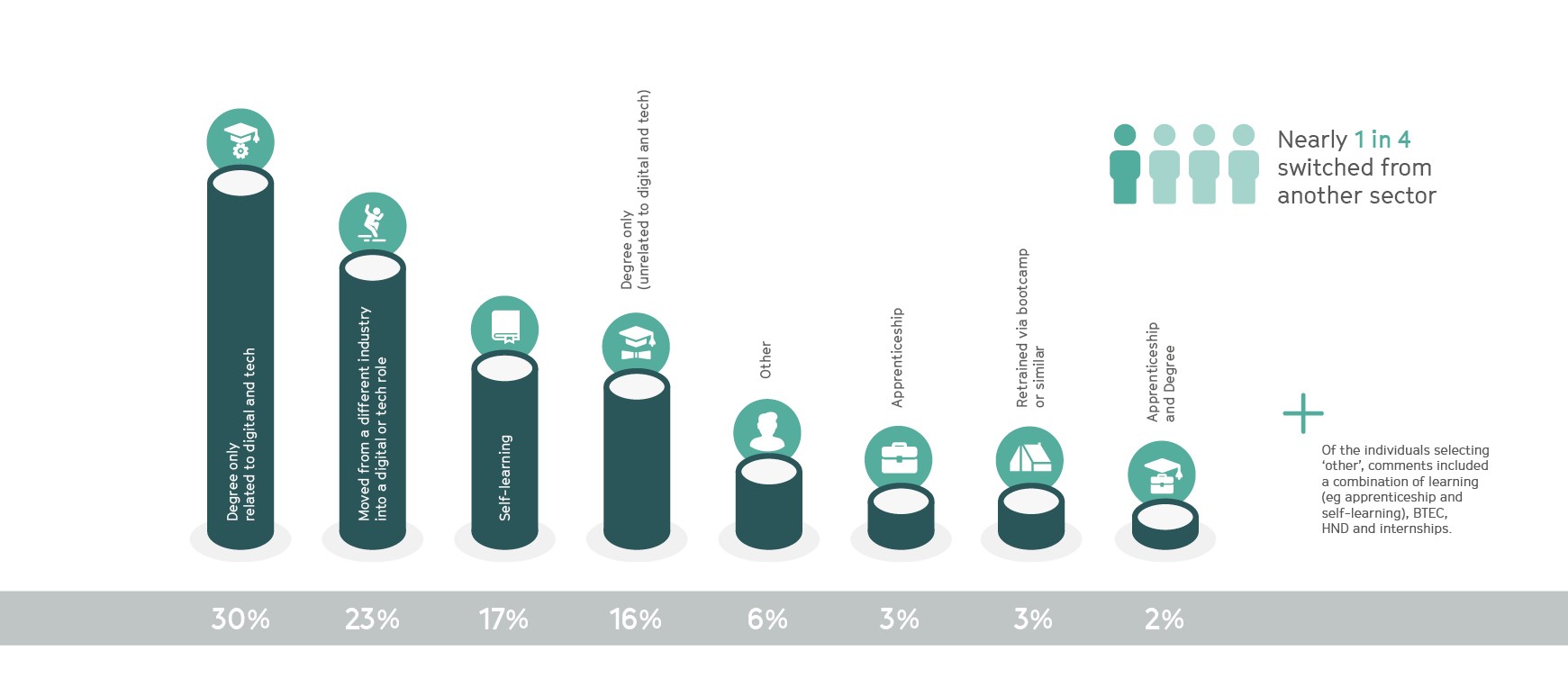
Trend 4 – Future Skills
When employers were asked which skill sets will impact the growth of their businesses over the next three years, 27% felt that sales and business development was most important. This was followed by developer skills (16%), strategy (12%), digital marketing (10%) and user experience (9%). The focus on sales and business development is a first in the history of the audit – it’s usually developer skills that come out on top. But it’s not hard to see how the pandemic has forced businesses to look long and hard at their sales processes and perhaps realise that they don’t have the skills they need.
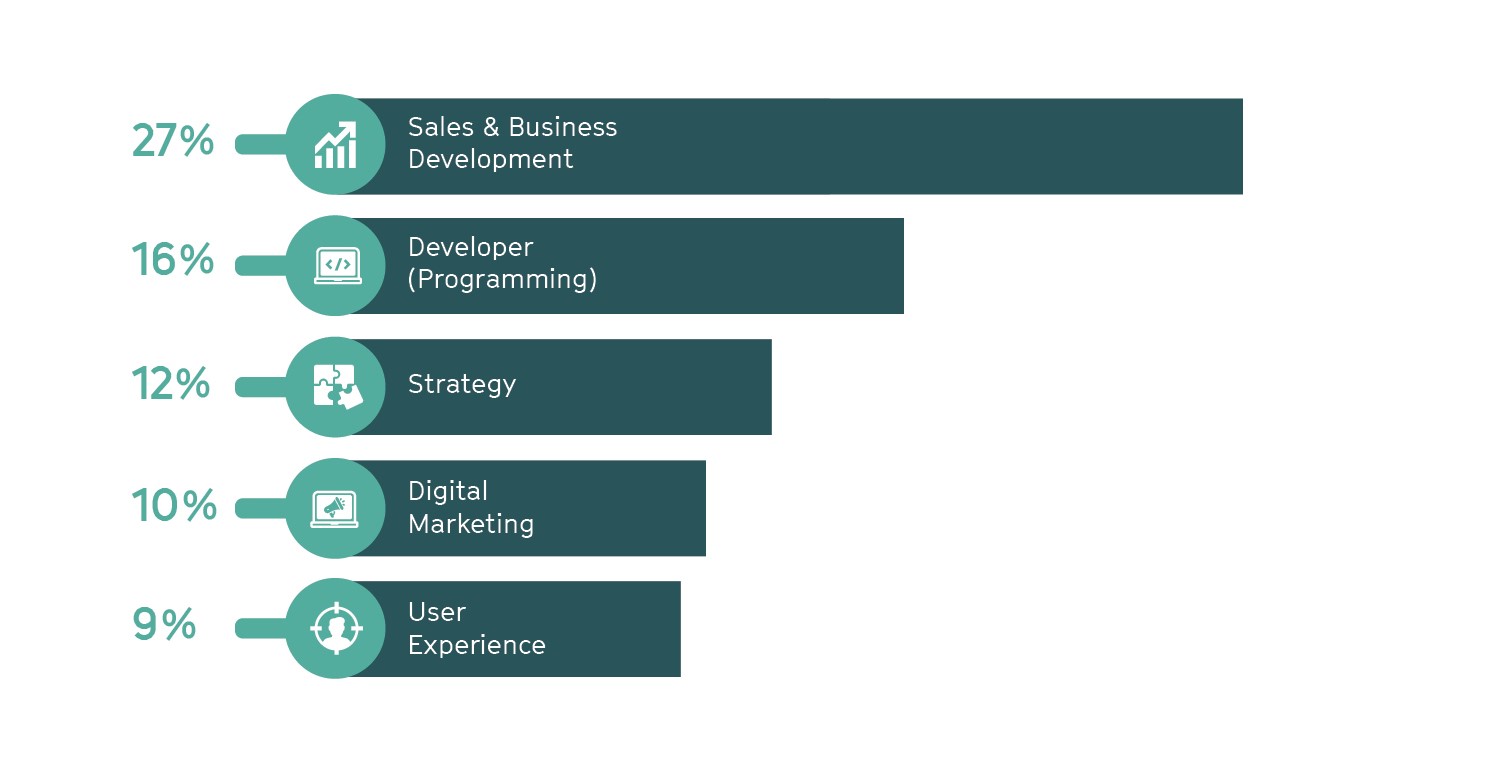
Trend 5 – Diversity
Lastly, but by no means least important, the figures on diversity remain depressing. Looking at all roles in the industry, 62% are held by men and 38% by women. When you focus in on technical roles, the split is even greater: 74% men to 26% women. And when you look at ethnicity, our industry reports as 87% white.
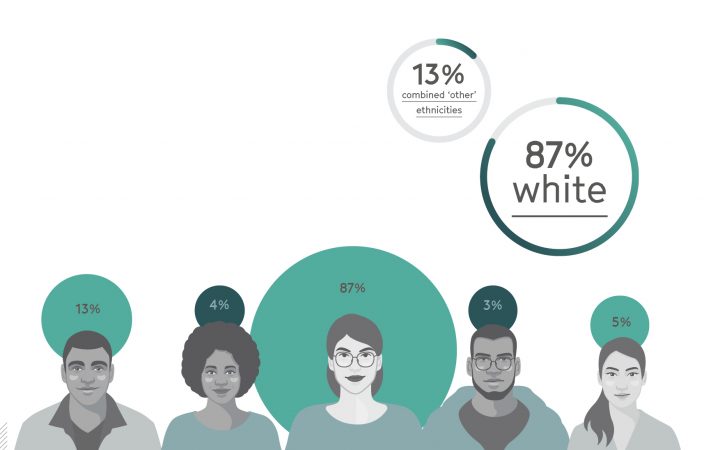
You can find out more about the Audit here and you can request a PDF of the report by emailing us: info@sheffield.digital. You can also watch one of our directors, Mel Kanarek discussing the results of the audit along with Martin Bryant (Founder of Big Revolution), Alison Ross (Operations and People Director at Auto Trader & Chair of Manchester Digital), and Ben Shorrock (MD of Tech Spark), as part of the Digital Skills Festival Conference 2021, in the video below.